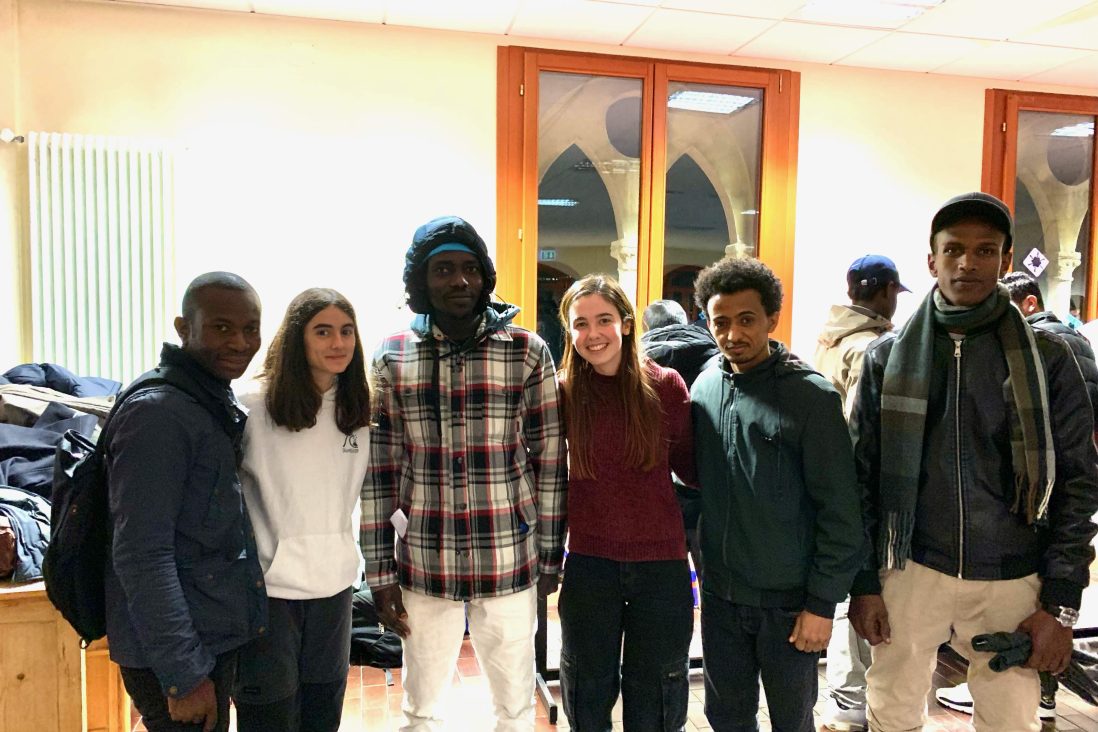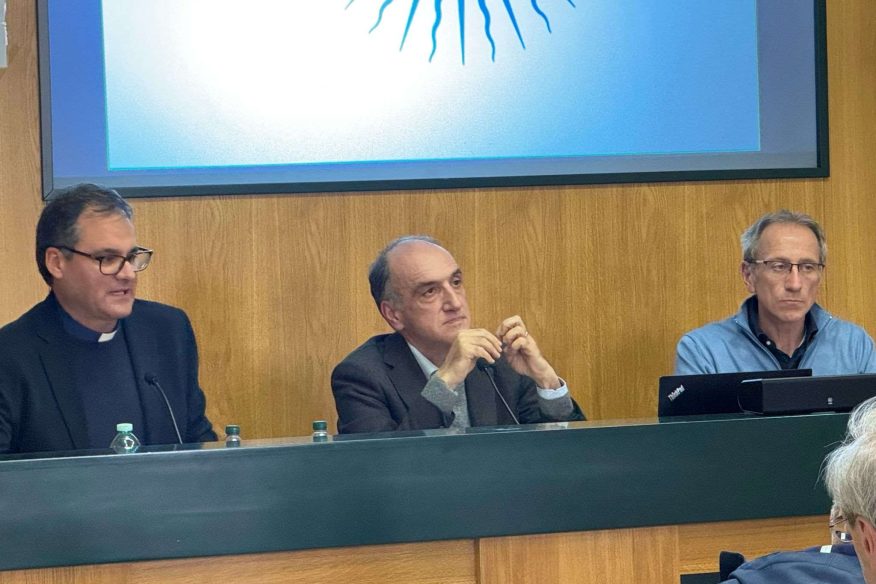Padua, from university college to residential community

After a long process of discernment, the Jesuit presence in Padua changed. Two years of reflection, a third of experimentation, listening to the diocese, to the Jesuits who had passed through the Antonianum and to the groups currently present there, has led together with the EUM Province to the transition from the historic university college active since the beginning of the 20th century to the ‘construction of a residential community for university students managed according to the Ignatian style’.
There are now two residences accommodating a total of 64 students. One part is the Antonianum residence, where one can experience life in common, deepen one’s interior life, observe and respond to the cry of the poor and the earth, link together study and the search for meaning. The other is the Messori Residence engaged profoundly in personal and community growth dynamics.
The formation proposal: The Spiritual Exercises in daily life and social work
For the past year, a group of people consisting of formators and young people has been working on the formation program. Community life, interior life, life on the peripheries and cultural life are the four core themes addressed.
“With regard to the interior life, an important new offer is being proposed to young people, not only to those living in the Centre but to those living outside the Centre as well, which is the Exercises in Ordinary Life (EVO),” Fr Alberto Remondini SJ, head of the Centre explains, “bringing to Padua, with the help of Fr Loris Piorar, the experience of 15 years of a spiritual journey offered by the Jesuits in Bologna, according to a tradition skilfully adapted to the life of a young university student. It is a demanding proposal, which provides participants with a weekly meeting for prayer instructions and sharing, a daily prayer time, and a periodic meeting with a guide. The group’s journey is punctuated by three residential retreats’.
Also significant is the link between the formation courses of the community of residents and the social work conducted by Popoli Insieme, a Paduan association that is part of the Centro Astalli network. “As of this year,” Remondini highlights, “there are four university students staying at the Antonianum who are refugees, seek international protection or come from migration backgrounds, accompanied on their journey by a worker of Popoli Insieme. This is a synchronisation that, as it takes place, generates new questions and new challenges for the young people of the Antonianum, who are already aware of the wounds of our world and committed to the different services of the Association”.
Testimonies
Marco: “a safe haven’
When I arrived at the Antonianum, I was at a time in my life where many changes were taking place. I went from school to university, from Palermo to Padua, from living with my family to living alone. At that point, the community of young people living at the Antonianum was a safe haven for me, making me feel accepted and welcomed.
I am a former student of Gonzaga in Palermo, a Jesuit school where I had the opportunity to experience important relationships and formation, which made me the person I am today. Ignatian pedagogy is part of my forma mentis, and reflecting on the future of the Antonianum was an opportunity to question myself on how to bear witness to the experience I had, on how to put the skills I had acquired at the service of the people I met. I found myself in dialogue with both my companions and the Jesuits, lending a hand in the reflection on the formation of us young people. Reviewing my experience as a leader in service giving led me to take the decision to accept the proposal of the Antonianum to collaborate as an employee in the care of youth formation, and to commit myself to this important year of experimentation.
Clara: ‘feeling at home’
You know that feeling of being at home? It’s not just having a room to stay in but living in a place where you feel you belong, sharing with roommates not only the space of the flat but also joys, difficulties, uncertainties and small and large steps of growth in everyday life, sharing a meal together, a herbal tea, cleaning…
This is the essence of my experience at the Antonianum Centre over the past two years, which began under the banner of the difficulties of the pandemic period that hindered social activities in person, and flourished thanks to the mutual commitment of wanting to go beyond physical barriers and individualism, to open ourselves up to the wealth of encounter. The opportunities for spontaneous exchange and confrontation, letting myself be touched by the novelty that the presence and diversity of others brings to my life, moreover, taught me at least as much as the formation courses we built with the guidance of the Jesuit fathers of the Padua community. By sharing our lives in common, we have essentially learnt to build community with the people here, and by choosing to take care of our inner lives we have experienced the power of fraternal communion in its wonderful simplicity.
Ilaria: ‘the volunteering experience’
“I started this journey about a year and a half ago and was struck by the number of opportunities and experiences that are offered to us students. Living here has made me feel part of a larger group, of a community born spontaneously among us. It is not only a community in name, but it is also a community in action, through small gestures and sharing everyday life, taking care of the environment around us, of people and bonds, curious to discover the Other and at the same time, in the Other discovering a bit of ourselves too, aware that we came here to study, but that we often learn much more from people than from books.
At the beginning of the year, we were offered some formation courses to choose from: with other young people I took part in the Involve proposal, volunteering with the Associazione Popoli Insieme, and accompanying two young university refugees here in Padua. This experience taught me the importance of knowing how to welcome people, their culture and their life stories, which are often very different from ours, and at the same time to meet others in an honest way, telling them something about us and letting ourselves be discovered by those with different outlooks from ours.
Annachiara: the power of the Spiritual Exercises in daily life
This year I chose to experience the journey of the spiritual exercises in daily life, which for me was an opportunity to try to accept that invitation to remain in the love that Jesus constantly addresses to us, to exercise the muscles of listening, of trust, of welcoming. In short, to remain facing those things that are difficult for me but that my heart desires at the same time. In this endeavour I have never been alone: the journey that began with strangers has become richer and richer with the familiarity, the comfort and even the cheerfulness of a group of friends.
This helped me experience the possibility – for me and for everyone – to relate to others, to myself and to the Other in a different way.
That is, trying to have the courage to face ‘heavy’ issues, fears and frailties in truth. From here one has the freedom to become simpler in a fuller and more conscious way.
Listening to my heart and trying to distinguish what it carries, discovering how much work and time it takes, encourages me to take care of and be patient with myself and others, to abandon all expectations towards quick solutions.
